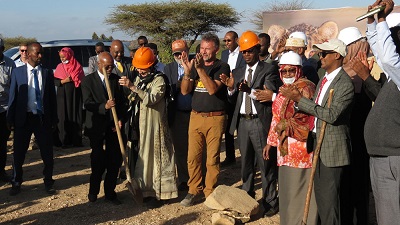
Government dependence syndrome
 Alcohol abuse, teenage pregnancies, pervasive ignorance and an inability to utilise their wonderful environment, is the hallmark of this San community.
Alcohol abuse, teenage pregnancies, pervasive ignorance and an inability to utilise their wonderful environment, is the hallmark of this San community.
Hilma speaks to five Khwe women who still view themselves as government dependent despite residing inside a national park with unlimited potential for tourism.
Five indigenous women from the Khwe community at Omega 3 in the Babwatwa National Park say they are faced with many challenges which have an impact on their lives and they feel neglected by government.
At an event hosted by the Women’s Leadership Centre in Windhoek, the women, aged 21 to 26 spoke out on issues such as extreme poverty, violence, lack of quality health care as well as the need for mother tongue education starting at basic education level.
According to the 26 year old Sabina Mushangava, the unemployment rate among the Khwe people is at an alarming rate. She says when job offers do come along, most of the indigenous people do not benefit from those job opportunities and as a result, many children are forced to live off their grandparents’ pension subsidies. Sabine who was four years old when Namibia became independent still can not speak English and has to communicate through an interpreter.
She says the elders of the Khwe tribe are faced with the challenge of obtaining identification cards in order for them to benefit from the pension allowances.
“The elders have to travel a long distance to Katima Mulilo to apply for identification cards but because of lack of transport, many elders do not receive any pension funds because they do not have identification cards,” Sabine says. She adds that the language barrier exists between the elders of Khwe and the officials in Katima resulting in a lack of communication and a frustration of the process.
22 year old Nduva Stupa, a mother of a one year old baby boy, says that the main contributing factor to the high rate of school drop outs is poverty. She says that many girls as young as 15 are forced to marry hoping that their spouses will be able to take care of them. “Many young girls drop out of school to get married due to poverty. Because their parents are unemployed, they tend to look for financial support from their husbands,” said Nduva.
The Khwe community has one kindergarten and a combined school. Nduva emphasised that the indigenous language is not taught at school and therefore the learners are only taught in English and Thimbukushu. She says there is no Khwe teacher at the school who understands their culture and language. This makes learning even more difficult for the learners. “School is making us forget our culture because there is no culture practice at these schools,” she says. Nduva called for government to implement literacy programmes especially for the school drops outs so that they can be motivated to better themselves.
Although the Khwe community has a clinic as well as a police station, all the officials stationed there do not speak the Khwe language. The clinic only has one nurse who goes on an annual leave for three months. “We are experiencing a break out in tuberculosis in the community so all the people needing medication suffer because the clinic is usually closed when the nurse is on leave,” says Margret Kamba.
According to Margret, due to poverty, many T.B patients do not complete their medication due to lack of food. She adds that many women end up delivering their babies at home because of the long distance to hospital facilities. “We feel like we are not important to government because of the lack of facilities given to our people,” said an emotional Margret.
According to Sophia Samboko, alcohol abuse is rife in the Khwe community. The 23-year old says that the community is displaced with many bars that operate all hours of the night. “It is not uncommon to see a bar owner selling alcohol to a minor, even school children come to these shebeens during school time to indulge in alcohol and often make it their regular hang out spot,” said Sophia. She adds that many young girls end up selling their bodies for alcohol and often fall pregnant or contract sexually transmitted infections.
Sophia says that alcohol abuse contributes to the high pregnancy rate among learners in the Khwe community, and is one of the main reasons for all the school drop outs. She suggests that a training centre for young women should be built to empower women at Omega. “Young women should also be included in the leadership programmes where they can be taught various skills such as writing, photography and also basket weaving” she says.
The five women are part of the Khwe Young Women’s Leadership Project established in 2005 by the Women’s Leadership Centre. The project’s first focus area was on writing and later on sexual reproduction and issues regarding culture and HIV/AIDS. According to Elizabeth !Khaxas of the Women’s Leadership Centre, an advocacy booklet on rural women in the Caprivi region is available at the centre. “We hope to have more [information] to empower rural women and wish to have many women join these leadership projects,” said !Khaxas.












































